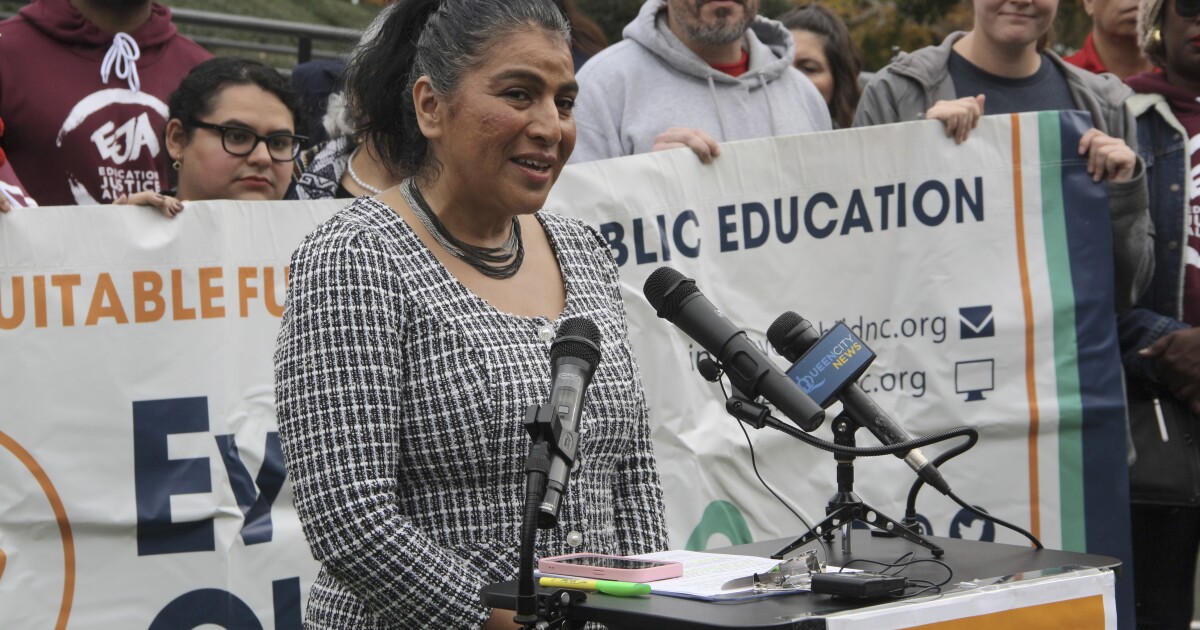North Carolina
Meet the volunteers who keep Western North Carolina’s trails safe and accessible

ASHEVILLE, N.C. (WLOS) — Western North Carolina is one of the premiere hiking destinations in the country.
Just ask Sarah Jones, who hikes several times a week.
“You can’t beat this. The views are amazing, and it’s great to be outdoors and getting movement,” Jones said.
Finding the perfect trail can be as simple as clicking an app or glancing at a guidebook. But what many may not realize is how much work it takes to keep the trails accessible and safe. That’s where people like Rich Evans come in.
“We are Carolina Mountain group volunteers, better known as old people with tools,” Evans said.
HIKING ETIQUETTE: BEST PRACTICES WHILE ON THE TRAIL
Chances are, you’ve seen them out working. You may have even passed by and said hello. On this day, Evans is not only working with his trail maintenance crew, he’s also showing some UNC Asheville students what they do.
“Everybody drop their tools and stuff, and I’ll tell you what we’re doing,” Evans said.
Made up of more than 1,100 members, the Carolina Mountain Club is mostly retirees like Evans.
“I turn 77 in two weeks, and I’m not even the oldest member on my crew. I have several that are older than me,” Evans said.
A BOOMING OUTDOOR SCENE: DISCOVER THE LOCAL COMPANIES MAKING WAVES IN WESTERN NORTH CAROLINA
They adopt one or more sections of trail and work in groups, typically, five to eight volunteers per crew.
- Clearing
- Digging
- Shoveling
- Hammering
- Cutting
- Moving dirt, rocks, debris and logs
Carolina Mountain Club Vice President Les Love said they can use all the help they can get.
“We take care of over 400 miles of trails. That’s about 96 miles of the Appalachian Trail and over 150 miles of the Mountains to Sea Trail.”
And according to volunteer Ken Hummel, their biggest challenge is?
“I just know the biggest factor is water.”
‘THIS COULD BE BETTER’ HOW OUTDOOR ENTHUSIASTS CREATED A BUSINESS AROUND GOURMET CAMP FOOD
And there’s no bigger reminder of that than what the remnants of Tropical Storm Fred did to the area nearly two years ago.
“The purpose of our job here is to keep hikers on the trail and water off the trail,” Hummel said.
Heavy rains have become more frequent, a result of climate change. And that’s altering how the Carolina Mountain Club approaches its work.
“We used to just make little cuts in the trail and let the water runoff, and then clean it up two or three times a year. Now, we’re focused on bigger, more effective water diversions,” Hummel said.
And they’re working.
“As water rolls down the trail, it gets diverted off pretty quickly,” Hummel said.
That limits the amount of erosion and gets hikers back on the trail safely and more quickly. And Elli Saraceno, who hikes several days a week, has noticed.
“I’ve seen them a lot after it rains and trees fall down, and they fix everything kind of right away. Sometimes, we get a lot of rain in the spring, and it messes up the trail a lot. Trees fall down over the trails and messes up stuff, and it seems it’s always fixed right away, so they are out here a lot,” Saraceno said.
TOP 5 LIST: DISCOVER THE BEAUTY OF WNC’S WATERFALLS
The Carolina Mountain Club crews typically work five-to-eight-hour shifts with a different crew working seven days a week.
The club will be celebrating its 100th anniversary in July with a celebration planned at the North Carolina Arboretum on July 16.
If you’d like to become a member of the Carolina Mountain Club, click here.

North Carolina
From crops to ski slopes: The rising cost of warmer winters in North Carolina

North Carolina’s winters are
warming at an alarming rate, bringing unpredictable weather, reduced snowfall,
and a host of challenges for agriculture, tourism, and daily life. From
disrupted farming cycles to ski resorts struggling to make snow, the effects of
this climate shift are felt across the state— and experts warn it’s only going
to get worse.
Winter temperatures in North
Carolina have been steadily rising, with significant consequences for
agriculture, local communities and tourism. Since 1970, Raleigh has warmed by
about 5.7°F, surpassing the national average. This warming trend is part of a
broader pattern across the U.S., where winters have warmed by about 4°F on
average since 1970, with meteorological winter —spanning December through
February — being the fastest-warming season.
Jacob Sheff, an atmospheric
scientist at UNC Charlotte, attributes this rise in temperatures largely to
human activity. “The fossil fuels we burn create a blanket around the earth,
and we’re sort of inadvertently making that blanket thicker and thicker,” he
says. “Now, it’s much more difficult for us to have snow here in North
Carolina.” Sheff says that it’s becoming harder to get cold enough for snow as
the overall climate warms.
Warm winter ahead: WRAL Severe Weather outlook doesn’t look good for snow lovers
This prolonged warm season is
impacting agriculture. Michelle Pace Davis, with Pace Family Farms in Clayton,
has noticed the effects of recent erratic weather, from heavy rain to drought.
She also says it’s harder to keep pests at bay. “With these warmer winters,
pests can survive longer and affect our crops more, and that, in turn,
increases costs,” she says.
Warmer temperatures extend the growing season, but
they also bring new challenges for farmers, who now have to contend with pests
that would typically die off in the cold.
The longer warm season also
extends the mosquito and allergy seasons. Lauren Casey, a meteorologist with
Climate Central, notes that warmer winters are affecting health in a variety of
ways. “In the past, we could count on the cold weather to kill off mosquitoes
and keep allergies at bay, but now we’re seeing them stick around longer,” she
explains.
In Raleigh, there are now 27 more days suitable for mosquitoes than
in 1980, which increases the risk of health-related diseases.
“Nearly 14
million kids suffer from seasonal allergies, and longer allergy seasons mean
more suffering from congestion and sneezing,” Casey said.
In addition to the health and
agricultural impacts, warmer winters are bringing more intense rainstorms.
“When it rains these days, it’s raining about seven or eight percent harder
than it used to,” Sheff says. This increased rainfall can strain local water
systems and complicate flood management, especially as more moisture is in the
air due to warmer temperatures.
While milder conditions may
benefit some, the region’s ski resorts are feeling the effects of reduced
snowfall.
“We used to get about six or seven days in a row of weather cold
enough to make snow, but now it’s just two or three,” says Shawn Cassell, marketing
director at Snowshoe Mountain Resort. “We really have to weatherproof ourselves
for those upswings, making more snow in tighter windows than we ever had
before.”
Sheff warns that as the
planet continues to warm, North Carolina — and the world — will face more
disruptions to weather patterns, agriculture, and local economies.
Looking ahead, North Carolina
faces increasingly unpredictable weather patterns. “We’re seeing a rise in
warmer-than-normal winter days, which has a ripple effect on everything from
water supply to pest survival,” says Casey. “With warmer winters, mold season
is lasting longer, as mold thrives in these conditions.”
As these effects become more
pronounced, adapting to these changes will be essential for maintaining the
state’s economy, infrastructure and quality of life.
North Carolina
North Carolina GOP's legislative priorities for this year inch closer to becoming law

North Carolina GOP lawmakers are one step closer to rolling out their legislative-session priorities into law before the year’s end after the state House opted to override one of Democratic Gov. Roy Cooper’s vetoes on Tuesday.
The vetoed bill contains significant funding for private school scholarship grants and a law compelling local sheriffs to comply with U.S. Immigration and Customs Enforcement — two issues that Republican leaders have repeatedly emphasized throughout this year’s session. The House’s override, which took place largely along party lines, is part of the General Assembly’s multiday session this week that includes work such as providing more relief to western North Carolina communities still grappling with Hurricane Helene’s aftermath.
About $463 million will go toward the state’s Opportunity Scholarship program under the legislation. It also includes $160 million to address enrollment growth in K-12 public schools and community colleges.
Most House Democrats railed against the private school scholarships and called on Republicans to focus on funding public schools and Helene recovery efforts. In a letter to lawmakers on Monday, Cooper, who is term-limited and leaves office come January, urged GOP legislators to do the same.
“The economy of Western North Carolina needs an infusion of funding now, not months from now,” he said in the letter.
But Republicans say the legislation is necessary to quell lengthy waitlists. Last year, the GOP-controlled General Assembly removed income caps for the Opportunity Scholarship program, which led to skyrocketing demand and 55,000 waitlisted children. Both legislative chambers eventually agreed on a spending deal — the bill Cooper vetoed — in September to eliminate the state’s waitlist.
“We do not need to set up a false choice between hurricane relief and public school funding and funding for the Opportunity Scholarship program,” Mecklenburg County Republican Rep. Tricia Cotham said in support of the bill.
The bill also incorporates language to force North Carolina sheriffs to comply with ICE detainers — requests to hold inmates believed to be in the country illegally — and notify federal immigration agents. Under the new law, those inmates would be held up to 48 hours under a judicial official’s order so they can be picked up by ICE agents.
The legislation comes on the back of President-elect Donald Trump’s electoral victory earlier this month. His campaign stressed illegal immigration as a safety issue and promised mass deportations during his second term — which was referenced during House debate as a reason to support the bill.
“I hope you will take into consideration the overwhelming opinion shown by the voters again of this state and country in this past national election,” Caldwell County Republican and bill sponsor Rep. Destin Hall said.
Opponents to the bill, such as several advocates at an Every Child NC news conference earlier on Tuesday, voiced concern that the law would unfairly target immigrant communities in North Carolina.
“HB 10 is extremely harmful for the undocumented community, and especially children who are attending our public schools here, going to school in fear that their parents might be detained,” said Brandy Sullivan, Southern Wake Liberal Ladies co-founder and a naturalized citizen from Mexico.
The Senate also needs to override Cooper’s veto to have the legislation go into effect.
North Carolina
NC House Republicans hold elections for new speaker

Tuesday, November 19, 2024 2:11PM
North Carolina House Republicans will hold elections for speaker and the rest of the incoming leadership team.
RALEIGH, N.C. (WTVD) — North Carolina House Republicans will hold elections for speaker and the rest of the incoming leadership team.
It comes after current speaker, Tim Moore, announced he would not return for a 12th term in the chamber.
Moore won his election to the U.S. House of Representatives.
The vote on new leadership is happening the same time as Governor Cooper’s veto of House Bill 10 is expected to be overridden by Republican state lawmakers Tuesday afternoon.
Copyright © 2024 WTVD-TV. All Rights Reserved.
-

 News1 week ago
News1 week agoHerbert Smith Freehills to merge with US-based law firm Kramer Levin
-
/cdn.vox-cdn.com/uploads/chorus_asset/file/25724877/Super_Nintendo_World.png)
/cdn.vox-cdn.com/uploads/chorus_asset/file/25724877/Super_Nintendo_World.png) Technology1 week ago
Technology1 week agoThe next Nintendo Direct is all about Super Nintendo World’s Donkey Kong Country
-
Business7 days ago
Column: OpenAI just scored a huge victory in a copyright case … or did it?
-

 Health7 days ago
Health7 days agoBird flu leaves teen in critical condition after country's first reported case
-

 Business3 days ago
Business3 days agoColumn: Molly White's message for journalists going freelance — be ready for the pitfalls
-
Politics1 week ago
Editorial: Abortion was on ballots across the country in this election. The results are encouraging
-
World1 week ago
Sarah Palin, NY Times Have Explored Settlement, as Judge Sets Defamation Retrial
-

 Politics2 days ago
Politics2 days agoTrump taps FCC member Brendan Carr to lead agency: 'Warrior for Free Speech'





/cdn.vox-cdn.com/uploads/chorus_asset/file/23932655/acastro_STK106__01.jpg)













